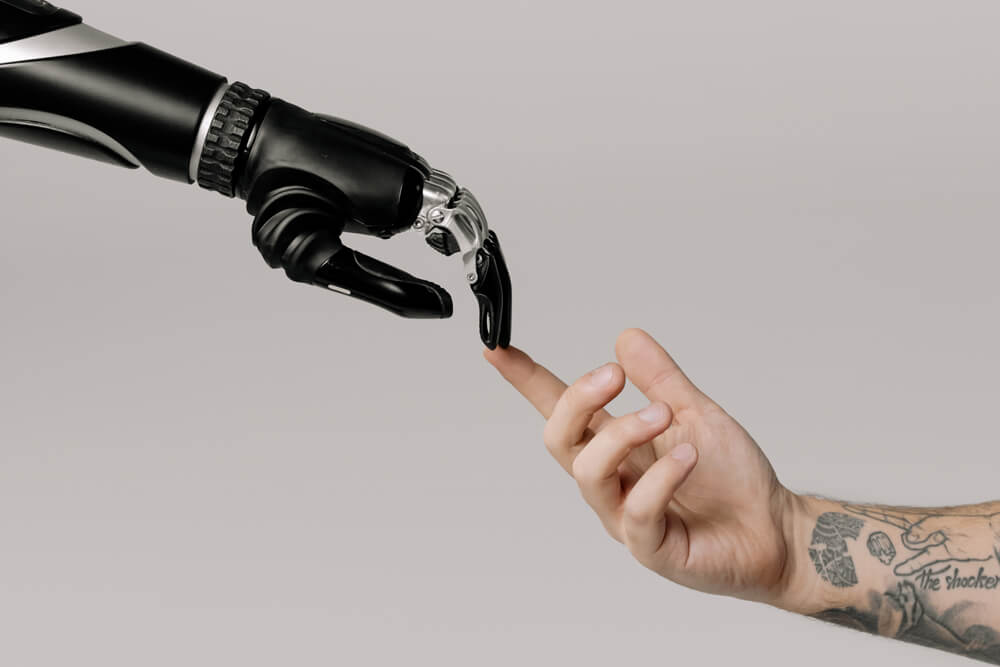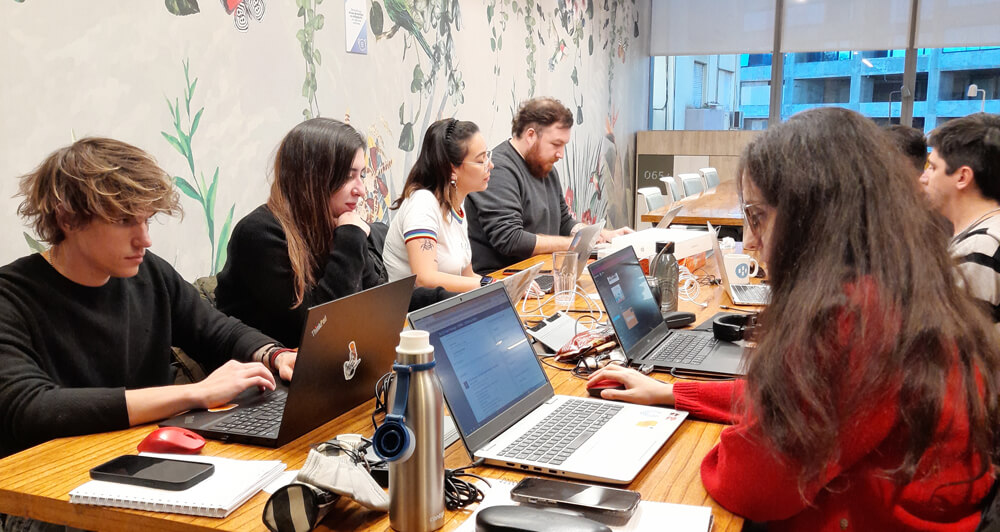Artificial Intelligence (AI) has had a significant impact on the recruitment industry, revolutionizing the way companies can potentially source, screen, and hire candidates. From automating repetitive tasks to improving the accuracy of candidate matching, AI has proven to be a game-changer for recruiters looking to streamline the recruitment process. However, like any technology, AI has its pros and cons when it comes to recruitment.
Some benefits of using AI in recruitment processes
One of the most significant benefits of using AI for recruitment is increased efficiency. AI-powered tools can automate time-consuming tasks such as resume screening, scheduling interviews, and sending follow-up emails. This frees up recruiters to focus on higher-value tasks, such as interviewing and assessing candidate fit. Moreover, the use of AI in recruitment can help reduce the time-to-hire, which is crucial when companies are looking to fill positions quickly.
AI can help eliminate biases in recruitment, a common challenge human recruiters face. AI-powered tools can analyze candidate data objectively, without being influenced by any external factors. This can help ensure that companies hire the best candidate for the job based on their qualifications and skills, rather than any other non-related factors.
At Bondy Group, we believe that the candidate experience is a critical component for our recruitment process outsourcing services to be successful. AI-powered recruitment tools can help improve the candidate experience by providing personalized communication, real-time feedback, and a seamless interview process. This can help create a positive impression of the company, even for candidates who may not be selected for the job. In turn, this can enhance the employer brand and attract more top talent.
By automating many of the repetitive tasks involved in recruitment, AI can help reduce the cost per hire. For example, resume screening, which can be time-consuming, can be automated using AI-powered tools. This can help reduce the time and resources required for recruitment, allowing recruiters to focus more into other responsibilities.

Drawbacks of using AI for recruiting
On the other hand, one of the drawbacks of using AI for recruitment is the lack of personalization. AI-powered recruitment tools lack the human touch required to build rapport with candidates. Candidates may feel disconnected or undervalued, leading to a negative impression of the company. This can result in a poor candidate experience, which can impact the employer brand and make it more challenging to attract top talent.
While AI can help eliminate human biases, it is not immune to bias itself. This can happen if the AI algorithm is trained on biased data or if the AI model is not correctly calibrated.
Although AI-powered recruitment tools can screen for skills and qualifications, they cannot determine whether a candidate is a good cultural or personality fit for the company. They may not be able to understand the contextual nuances of human language. For example, sarcasm, humor, or cultural references may be misinterpreted, leading to inaccurate screening or interviewing.
This is still the domain of human recruiters, who can assess a candidate’s values, goals, and work style. In addition, a human recruiter can assess whether the candidate is a good fit for the company’s culture, which is essential to ensuring that new hires integrate well into the team and the organization.
Could AI replace human recruiters?
It is essential to recognize that while AI can enhance the recruitment process, it will never replace human recruiters entirely. AI can perform many of the routine tasks, but it is the human touch that provides empathy, creativity, and intuition that is critical in building relationships with candidates and clients.
HR professionals will need to adapt to the evolving recruitment landscape and focus on developing their human skills to complement AI-powered tools effectively. HR professionals who can harness the power of AI while still providing a personal touch will be the ones who excel in the recruitment industry of the future. It’s essential to keep in mind that AI is a tool to support HR professionals in their work, not a replacement for them.
AI has undoubtedly transformed the recruitment industry, offering significant benefits such as increased efficiency, objective screening, enhanced candidate experience, and cost savings. However, it is essential to recognize that AI-powered recruitment tools have their limitations, including the lack of personalization, limited contextual understanding, bias in AI algorithms, and the inability to assess cultural and personality fit.
Therefore, while AI can be a powerful tool for recruiters, it should be used in conjunction with human expertise to ensure a comprehensive and effective recruitment process. By combining the strengths of AI and human recruiters, companies can create a recruitment process that leverages the efficiency and accuracy of AI while also providing the personal touch and insight that only human recruiters can provide. Ultimately, the key to successful recruitment lies in striking the right balance between AI and human expertise.
All this being said, here comes the fun and practical part!
How to improve the recruitment process with AI?

I’ll give you some tips to improve your sourcing with AI. These tasks can make you save time and reach a wider audience:
AI-powered boolean searches
AI can identify the most relevant keywords and phrases for a given search or position and use them to create effective boolean strings that deliver highly targeted results. Additionally, AI can analyze job postings and translate them into boolean or x-ray search strings, saving recruiters time and helping them to identify qualified candidates more quickly.
Automated job postings
AI can automatically post job openings on job boards, social media, and other online platforms to reach a wider audience quickly. This can be a significant time-saver for recruiters who would otherwise need to post job openings manually.
Candidate screening
AI can screen and filter resumes based on predefined criteria, such as education, work experience, and skills, to identify the most qualified candidates. This can help to speed up the candidate selection process and reduce the workload for recruiters.
Chatbots for candidate engagement
AI-powered chatbots can provide an interactive experience for candidates by answering frequently asked questions and guiding them through the application process. This can help to improve the candidate experience and save recruiters time by reducing the number of inquiries they need to handle manually.
Predictive analytics
AI can use predictive analytics to analyze data on candidate behavior and preferences to identify the most effective recruitment strategies. This can help recruiters to optimize their sourcing efforts and focus on the channels and platforms that generate the best results.
AI-powered interview reports
AI can analyze interview notes to create detailed reports that highlight key insights and potential areas of concern. This can help recruiters to gain a more objective perspective on the candidate’s performance and make more informed decisions about their suitability for the job. Additionally, AI can review the interview data and compare it to the job description to provide a match score that indicates the candidate’s fit for the role. This can be incredibly helpful in identifying the most promising candidates quickly and efficiently, saving time and reducing bias in the selection process.
Let’s put AI to work!




